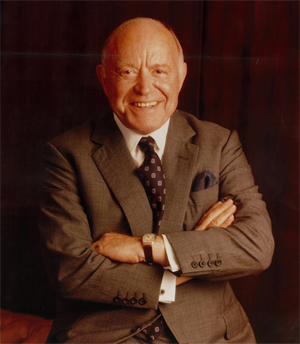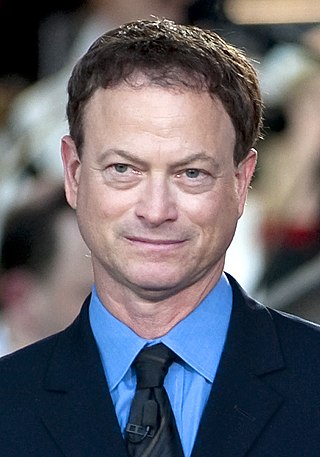
A kludge or kluge is a workaround or makeshift solution that is clumsy, inelegant, inefficient, difficult to extend, and hard to maintain. This term is used in diverse fields such as computer science, aerospace engineering, Internet slang, evolutionary neuroscience, animation and government. It is similar in meaning to the naval term jury rig.

Richard Dawkins is a British evolutionary biologist, zoologist, and author. He is an emeritus fellow of New College, Oxford, and was Professor for Public Understanding of Science in the University of Oxford from 1995 to 2008. His 1976 book The Selfish Gene popularised the gene-centred view of evolution, as well as coining the term meme. Dawkins has won several academic and writing awards.

Steven Arthur Pinker is a Canadian-American cognitive psychologist, psycholinguist, popular science author, and public intellectual. He is an advocate of evolutionary psychology and the computational theory of mind.
The technological singularity—or simply the singularity—is a hypothetical future point in time at which technological growth becomes uncontrollable and irreversible, resulting in unforeseeable consequences for human civilization. According to the most popular version of the singularity hypothesis, I. J. Good's intelligence explosion model of 1965, an upgradable intelligent agent could eventually enter a positive feedback loop of self-improvement cycles, each new and more intelligent generation appearing more and more rapidly, causing a rapid increase ("explosion") in intelligence which would ultimately result in a powerful superintelligence, qualitatively far surpassing all human intelligence.

Colin Henry Wilson was an English existentialist philosopher-novelist. He also wrote widely on true crime, mysticism and the paranormal, eventually writing more than a hundred books. Wilson called his philosophy "new existentialism" or "phenomenological existentialism", and maintained his life work was "that of a philosopher, and (his) purpose to create a new and optimistic existentialism".

John Werner Kluge was a German-American entrepreneur who became a television industry mogul in the United States. At one time he was the richest person in the U.S.

Gary Alan Sinise is an American actor, director, producer, and musician. Among other awards, he has won a Primetime Emmy Award, a Golden Globe Award, a Tony Award, and four Screen Actors Guild Awards. He has also received a star on the Hollywood Walk of Fame, and he has been nominated for an Academy Award. Sinise has also received numerous awards and honors for his extensive humanitarian work and involvement with charitable organizations. He is a supporter of various veterans' organizations and founded the Lt. Dan Band, which plays at military bases around the world.

Alexander Kluge is a German author, philosopher, academic and film director.

Niche construction is the process by which an organism alters its own local environment. These alterations can be a physical change to the organism’s environment or encompass when an organism actively moves from one habitat to another to experience a different environment. Examples of niche construction include the building of nests and burrows by animals, and the creation of shade, influencing of wind speed, and alternation of nutrient cycling by plants. Although these alterations are often beneficial to the constructor, they are not always.

Mary Beatrice Midgley was a British philosopher. A senior lecturer in philosophy at Newcastle University, she was known for her work on science, ethics and animal rights. She wrote her first book, Beast and Man (1978), when she was in her late fifties, and went on to write over 15 more, including Animals and Why They Matter (1983), Wickedness (1984), The Ethical Primate (1994), Evolution as a Religion (1985), and Science as Salvation (1992). She was awarded honorary doctorates by Durham and Newcastle universities. Her autobiography, The Owl of Minerva, was published in 2005.
Culturgen is a term used to denote a theoretical 'unit' of culture or cultural evolution. More specifically, analogous to a gene, it is a cultural artifact or element of behaviour whose repetition or reproduction is transmissible from one generation to the next. It has largely been displaced by the similar term meme.

A super soldier is a concept soldier capable of operating beyond normal human abilities through technological augmentation, ranging from powered exoskeletons to advanced training regimens or genetic modification or cybernetic augmentation.
Dual inheritance theory (DIT), also known as gene–culture coevolution or biocultural evolution, was developed in the 1960s through early 1980s to explain how human behavior is a product of two different and interacting evolutionary processes: genetic evolution and cultural evolution. Genes and culture continually interact in a feedback loop: changes in genes can lead to changes in culture which can then influence genetic selection, and vice versa. One of the theory's central claims is that culture evolves partly through a Darwinian selection process, which dual inheritance theorists often describe by analogy to genetic evolution.

Michael I. Posner is an American psychologist who is a researcher in the field of attention, and the editor of numerous cognitive and neuroscience compilations. He is emeritus professor of psychology at the University of Oregon, and an adjunct professor at the Weill Medical College in New York. A Review of General Psychology survey, published in 2002, ranked Posner as the 56th most cited psychologist of the 20th century.

Gene Baur, formerly known as Gene Bauston, is an American author and activist in the animal rights and food movement. He’s been called the "conscience of the food movement" by Time magazine, and opposes factory farming and advocates for what he believes would be a more just and respectful food system. Baur is president and co-founder of Farm Sanctuary, a farm animal protection organization. He is vegan and has been involved with animal rights since he co-founded Farm Sanctuary in 1986. Baur has authored two books and various articles.

Gary Fred Marcus is an American psychologist, cognitive scientist, and author, known for his research on the intersection of cognitive psychology, neuroscience, and artificial intelligence (AI).
Kluge is a German surname.

Our Final Invention: Artificial Intelligence and the End of the Human Era is a 2013 non-fiction book by the American author James Barrat. The book discusses the potential benefits and possible risks of human-level (AGI) or super-human (ASI) artificial intelligence. Those supposed risks include extermination of the human race.

A Troublesome Inheritance: Genes, Race and Human History is a 2014 book by Nicholas Wade, a British writer, journalist, and former science and health editor for The New York Times. In the book, Wade argues that human evolution has been "recent, copious and regional" and that this has important implications for social sciences. The book has been widely denounced by the scientific community for misrepresenting research into human population genetics.

Gears of War is a media franchise centered on a series of video games created by Epic Games, developed and managed by The Coalition, and owned and published by Xbox Game Studios. The franchise is best known for its third-person shooter video games, which has been supplemented by spin-off video game titles, a DC comic book series, seven novels, a board game adaptation and various merchandise.
















